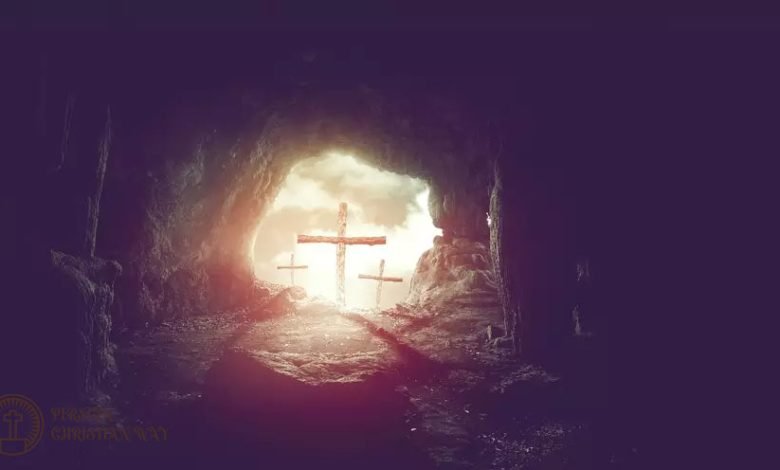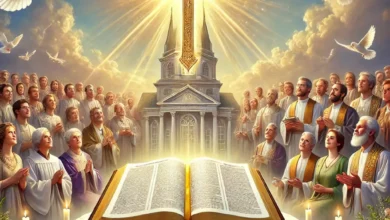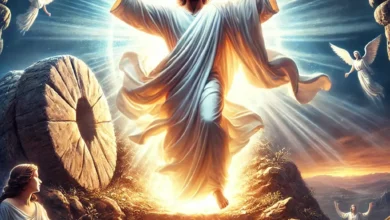
What Does it Mean That Jesus Is ‘The Firstborn from the Dead’?
Mercy and peace be upon you from Him who is, was, and will come, and from the seven spirits who are before His throne, and from Jesus Christ, the faithful witness, the firstborn of the dead and the ruler of the kings of the earth (Revelation 1:4).
The title “firstborn from the dead” is of great theological significance for Christ, especially with Easter in mind. The Greek word for “firstborn” that John uses is “prototokos” (prōtotokos), which literally refers to birth order—the first child born. This is a concept of great importance in the Old Testament, where the eldest son inherits his father’s position as head of the family, receives the father’s blessing, and receives a double portion of the inheritance (Deuteronomy 21:17). After the Passover in Egypt, God told his people that every firstborn child would be set aside as his own (Exodus 13:2) and the entire nation of Israel was known as God’s “firstborn child” (Exodus 4:22).
Because of the biblical importance attached to the concept, the word “firstborn” took on a figurative meaning and also referred to the special position of the firstborn as the pre-eminent son and heir. In the New Testament, Christ is represented as the “new Israel,” the culmination and fulfillment of God’s promise to bless all nations through Abraham’s seed (Galatians 3:7). In his perfect life and sacrificial death, Jesus fulfills Israel’s intended role as God’s faithful eldest son and is confirmed by God in his glorious resurrection.

Jesus as the first born child
The term “firstborn” (prototokos) is used many times in the New Testament to describe Christ. Let’s look at some examples of these verses:
Romans 8:29: “For those whom He foreknew, He also predestined to be conformed to His Son, that He might be the firstborn among many brothers.”
In this verse, Jesus is described as “the firstborn among many brothers.” This means that he is a role model for all who follow him.
Colossians 1:15: “He is the image of the invisible God, the firstborn of all creation.”
This verse emphasizes the special position of Jesus as the first creation of God, as well as his superiority over all creation.
Colossians 1:18: “He [Jesus] is the head of the body, that is, the church; He is the beginning, the firstborn of the dead, that in all things he may be first.
This verse points to three aspects of Christ’s supremacy: He is the head of the church, the beginning of all things, and the first to rise from the dead.
Hebrews 1:6: “But when he [God] brings forth the firstborn, he says: ‘And let all the angels of God worship him.'”
This verse shows that Jesus is worthy of worship because he has a special place with God.
In addition to these verses, two other verses express the same concept in slightly different terms:
Acts of the Apostles 26: 23: “… that the Messiah must suffer and be the first to rise from the dead and proclaim the light both to his own people and to the nations.”
This verse emphasizes the importance of Jesus rising from the dead as the first person.
1 Corinthians 15:20-22: “For as by one man came death, so also by one man was the resurrection of the dead.” Because as in Adam all die, so in Christ all will be made alive. But each in his own order: Christ is the firstfruits, then in his coming, they who are of Christ.”
This verse describes Jesus as the “firstfruits” of the dead. This means that he is the first person who rose from the dead and opened the way for the final resurrection of all believers.
Jesus as the firstborn child of the dead
The term “firstborn of the dead” has two important aspects for Jesus Christ: superiority in time and superiority in position.
Supremacy in time: Jesus was the first person to be resurrected from the dead. His resurrection is the beginning of a new era that God brought with Jesus’ victory over sin and death. The resurrection of Jesus Christ opens the way for all who believe in him to follow him in a similar resurrection when he returns. This is important because it shows that our ultimate hope is not just the soul going to heaven, but the resurrection of our physical bodies to a new Jesus-like life. He is the “first born child of the Resurrection”.
Preeminence in authority: In Revelation 1:5, we also see the figurative meaning of this term, which refers to Jesus’ preeminence in power and kingship after his resurrection. Bible scholar J.K. Bale explains:
“John sees Jesus as the ideal Davidic King on a higher level than the end of time, whose death and resurrection have led to his eternal reign and the reign of his beloved children… “The firstborn” refers to the exalted and privileged position that Christ will receive as a result of He has obtained resurrection from the dead… . Christ has obtained such a position of sovereignty over the universe, not in the sense that he is known as the first creature of all creation or the origin of creation, but in the sense that he is the initiator of a new creation with his resurrection.
Today in the article : What Does it Mean That Jesus Is ‘The Firstborn from the Dead’? We reviewed useful information about the Bible and the way of Jesus. If you wish, you can view other articles of Ali Vahidi about Christianity





